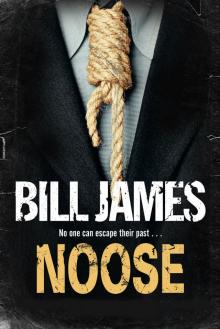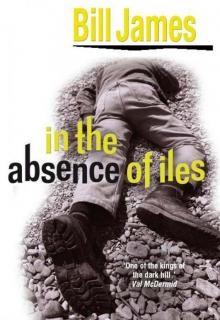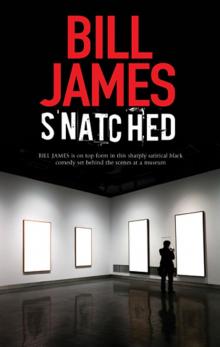- Home
- Bill James
In the Absence of Iles Page 6
In the Absence of Iles Read online
Page 6
‘It did to me,’ Esther said.
‘It did?’
‘Certainly.’
‘But not enough?’
‘Not enough, no.’
‘You make his case, I suppose.’
‘In what way?’ Esther replied.
‘You interpreted what you should interpret – what all present were intended to interpret from my refusal to attend – yet went ahead with Out-location, regardless. A said, “Fucking sophistry,” when I referred to the emphatic, implied, non-clarion but definite message in my nonappearance. “Fucking senior cop’s fucking cop-out,” he added. He’d begun to recover by then. He said I owed you help now, in view of my refusal to be present at Fieldfare and deter you from an undercover operation. This certainly seemed odd coming from him – someone who’d helped persuade you to go with it.’
‘Do you see anything here?’ she said, nodding towards pebbles and then the sea. ‘You were a detective, weren’t you?’ Far out, a piled-high container vessel lay at anchor maybe waiting for the tide so she could dock. Cormax Turton did a lot of business with shipped freight, some of it legal. Small, muddy waves broke almost silently a hundred metres away as if exhausted by getting in and out of lock gates.
‘“See anything”? In what sense?’ Iles said.
‘Anything that might help us take the investigation forward and get the sods who did him.’
‘I didn’t tell A to for God’s sake pull himself together when he broke down,’ Iles replied. ‘It would have been a customary reaction from someone in my rank hearing someone in his helplessly grizzle and sob – perhaps self-indulgently. That’s not my style, though. I believe people should let their emotions run, rank immaterial. Several times I waited for him to recover. It seemed only decent. If he was on pay-as-you-talk, this would be costing him.’
‘You mentioned B. We had the rescue unit in within minutes of his six-hour failure to make contact. Minutes. She stipulated that. I didn’t go with them. It wasn’t a job for an ACC. Later, I did visit one of the sites under search. Just watched from outside, though. As a matter of fact, the head of the firm, the prime, uncrackable villain, Cornelius Turton, came out and spoke to me, claimed not to know what we were looking for, of course.’ Esther felt her voice grow defensive, plaintive, frantic. She’d done everything she’d been told, but disaster still arrived.
‘A said that during one of his presentations that chatty, venerable ponce, Mullins, put up some standard, ancient objections to undercover – stuff about turning officers into rats, plus all the usual legalistic quibbles, such as, This cop has become a crook allegedly so as to catch crooks and is it permissible? Arguments so feeble they only strengthened the positive,’ Iles replied.
‘Well, yes.’
‘You’ll ask what A meant when he spoke of my helping you in the aftermath situation. It would be more than just viewing the scene as now,’ Iles said.
‘Did he have Mullins’ name? He wasn’t supposed to know our names.’
‘He’s a detective.’
‘We didn’t and still don’t have his.’
‘Their dainty little secrecy procedures,’ Iles said.
‘Although they might irritate you, it comforted me not to know his name.’
‘Well, it was meant to comfort you, wasn’t it? Salesmanship. Spin. A trick. It aimed to make you think full concealment is achievable and sustainable. Fieldfare pretends secrecy can be constructed like any other product – a car or TV set. It fancies itself as the disguise factory for undercover. I expect some sessions were in the Simpkins Suite. As you’ll know, of course, Walter Barker Simpkins circa 1795 virtually invented one version of what ultimately came to be called the “conveyor belt” – in its day, “the Simpkins Endless Carrier Commodity Link”, abbreviated in histories of the Industrial Revolution to “Simpkins’ Link”, almost up there with “Crompton’s Mule”. And, in harmony with old Walter B., Fieldfare wishes to think the requirements of all Out-located operations can be efficiently assembled in its workshops and then distributed en masse. Sometimes they’re successful. Less often than not? I think so.’
‘A wanted you there at the Fieldfare course to say that?’ she said. ‘To undermine him and to put the rest of us off sponsoring undercover? This is crazy, isn’t it?’
‘Now he would like me to have been there. Today. Flashback. It’s guilt. He believes he conned you, pressured you, and he could be right. He considers I might have stopped this. So, I’m “fatally remiss”. Fatally. If I had been there, of course, he’d have tried to destroy me and my arguments, as he did the comical relic, Mullins. It’s the death that brings A the regret and tears and hindsight wisdom.’
They returned up the beach and path towards Esther’s car.
‘A wanted me to come and apologize to you and to the family,’ Iles said. ‘He claimed he couldn’t face that himself.’
‘He can face anything because he’s got a sheaf of them – faces.’
‘He thought I would understand how you feel. I lost an undercover man myself, you know.’
‘Yes.’
‘Raymond Street. This is a memory that sticks.’
‘It will.’
‘My advice is to act impeccably.’
‘In what respect?’
‘That’s my instinct.’
‘I’d always try to.’
‘Get the people who did it, certainly. But get them with straight, incontestable, legit evidence.’
‘You didn’t do that, did you?’
‘The courts and defence QCs will be on supreme alert for any sign of framing people for the death of your man,’ Iles replied.
‘They saw through your case, didn’t they?’
‘Lawyers and the court know well how enraged, and sorrow-laden, and determined on a conviction police become if one of their undercover people is abused and executed,’ Iles said.
‘You and a sidekick tried to tart up the evidence when it happened to your man, didn’t you? And, of course, it was spotted and the villains got off on a technicality.’
‘Lawyers live by technicalities, the way whores live by blow-jobs. Truth is what the jury believes. That’s another of my maxims. Inns of Court jargon dubs technicalities “due process”, the vowel sounds stretched out in judicial voices for solemnity. You’ve an idea who slaughtered your lad, have you?’
‘We’re trying to get a prosecution together.’
‘Vengeance – not a wholesome impulse, but godlike. “Vengeance is mine. I will repay, saith the Lord.”’
‘“Mine”. “I will repay”. I thought that meant leave vengeance to Him. Don’t try it yourself.’
‘It’s from the Epistle to the Romans. They did have a lot of vengeance and violence there, so you could be right and Paul wanted them to calm down, and quoted that Old Testament bit saying God would handle things.’
‘I don’t think of what we’re doing as vengeance, rather as –’
‘And then judges – they have their own way of looking at things,’ Iles said.
‘A told us that.’
‘That’s what they’re there for.’
‘What?’ Esther said.
‘However, to be fair, some judges incontestably come up very nearly to average intelligence. I heard the names of several only the other day. With any luck you might get one of those.’
‘You didn’t for your case, did you?’
‘Sometimes they’ll slip in quite relevant questions. I’ve known it, personally been in court when it happened. I don’t deal in gossip. Your witnesses should be warned in advance that a judge might suddenly ask something totally damn sane, to all intents and purposes. It’s not just the cross-examination they have to prepare for.’
‘One story around was that you actually garrotted the two who got off because you were sure they’d previously garrotted your officer,’ Esther answered. ‘I mean, you did it individually, no hired heavies. Like tit-for-tat. They could never fix it on you – you being smart and brazen – but the ta
le persists. Why you’ve never gone beyond Assistant Chief? The pair were found garrotted, weren’t they?’
‘My wish to come out here and see the spot where your officer was found might seem to you of no purpose,’ Iles replied. ‘And it’s true I can’t altogether explain the desire adequately even to myself. I suppose I’d call it completeness. Yes, completeness. If an Out-located officer’s body is washed up on a beach, I have to see that beach. It’s something I felt required to do before meeting the family. If I refer to the pebbles they’ll know I’ve been thorough.’
‘They’re not fond of us, in the circumstances. They see me as responsible.’
‘Luckily, empathy is another core facet of mine. I find I can reach people, even people afflicted and perhaps hostile, as these may be.’
‘Look, Desmond, it might be best not to talk to them about the similar situation you went through, and the outcome there – the subsequent double garrotting. I don’t want them thinking I’ve sent for you to do the job on suspects in the Cormax Turton Guild, like a hit-man. This might look bad for me.’
They climbed into the car. Iles said: ‘Empathy is not an attribute you’ll see on the usual schedule of career requirements for an ACC, but in my view it’s a nice extra. A mentioned it with gratitude after I’d listened to him and – I think I can claim – consoled him, on the telephone. He said: “Do you know the word that comes to me about your attitude during this conversation, Mr Iles?” Well, do rabbits fuck like crazy – certainly I knew.’ Esther drove. ‘But I didn’t say it. I affected ignorance because, one, for me to reply, “Oh, I expect you mean ‘empathy’, A,” would have sounded like uncharacteristic vanity; plus, two, it might have seemed I’d simply laid it on, the empathy, as if I were used to dealing with his kind of unfortunate collapse – I am, but didn’t want A to suspect and feel patronized; and, three, I considered he should have the satisfaction of producing the word himself: it seemed only proper. “Empathy,” he said. “Empathy?” I replied, apparently startled and wholly unused to the term. Then I repeated it, more ruminatively, like getting a slice of education from him in vocab: “Empathy. Hm, empathy. Well, you said it, A, not I.” “This you radiate,” he commented. “That’s very kind of you,” I remarked. “Yes, empathy, empathy, empathy,” he declared, with excellent rising volume, clarity and intensity, as he rang off.’
‘Like a curtain line in the theatre,’ Esther said. ‘A can always put on a brilliant show.’
‘Yes, they are inclined to be like that, shifty-by-nature undercover people, aren’t they? Changeability is a constant. But I’ve decided, after all, that I don’t need to get a different direct phone number at this stage.’
‘I did undercover once.’
‘Absolutely,’ Iles said.
Chapter Six
‘Please describe to Her Honour and the jury the special duties of Detective Sergeant Dean Martlew in the period immediately before his death.’
Richard Channing said: ‘He had successfully infiltrated a group of companies in order to carry out certain inquiries.’
‘“Infiltrated”, Superintendent,’ Longmuir QC said. ‘Would you explain what that means here?’
Esther found she could not keep away from the trial, but didn’t get there for every session. That would have signalled nervousness about the case. In fact, she was awash with nervousness about the case – the possibility of blame on Channing and therefore on her, the foul possibility, too, of an acquittal and the unpredictable aftermath this might bring. She must not show her anxiety, though. Juries had to be helped into wisdom and cooperation, i.e. into thinking the police considered the case open and shut and that, therefore, it might be open and shut and possibly worth a conviction. ‘Truth is what the jury believes,’ as Iles would say – unless, of course, it believed something he didn’t.
Instead of continuous attendance at court, Esther turned up for a morning or afternoon now and then, with no real system, and sat in the public gallery. She wore civilian clothes, and tried not to look jinxed by fret. So far today, she felt reasonably at ease. But it was only the prosecution case and the lawyer a wonderfully committed ally, his wonderful commitment costing an arm and a leg, with refreshers. He simply led Channing into describing the spy game, as far as Channing knew it. To date, the judge seemed tolerable, her interventions egomaniac, wet, but undestructive. Esther feared the cross-examination to come from the Defence, perhaps tomorrow. In a crazy but obsessive way she found herself thinking that if this murderous, torturing sod in the dock somehow got off – and trials had a lot of damn somehows – if this unholy sod got off, the blame torrent for Dean Martlew’s death would, and should, drop on her.
After almost endless, picky, and possibly biased, deliberations, she had put him where he was and then failed to get him out from where he was when it was so necessary to get him out from where he was if he wasn’t to turn up corpsed on a beach with his face and neck much carved possibly for hours before death. Nominally, Channing ran things, but she’d wilfully chosen Channing above his boss and oversaw Channing – meaning she directed him, told him policy. And she’d chosen him because he hated the risks of undercover which, in her view, then, would keep him super-careful and vigilant, and therefore make Dean Martlew safer. Such reasoning she’d found fell pathetically short – smart-arse perversity. Maybe she understood the brutal tales about Desmond Iles in his terrain more fully now. Had he felt such shame at what happened to his Out-loc man that he decided the swiftest way to redemption and renewed peace of mind was to slaughter the pair of villains himself; the lunatic jury there having, in fact, come up with a different truth from his, despite rigorously assisted evidence? Yes, perhaps. Only perhaps. Nothing had been proved.
This simplistic, abattoir solution would not be available to Esther, though. She knew she’d never have the spirit and/or wrist strength to garrotte. To her, garrotting looked a sinister, damnable skill; in fact a kind of art, a kind of filthy art, and Iles had about him much of the good third/fourth-rate artist: arrogance, contempt for usual social and possibly legal standards, some flair, some posturing, some taste, some vision, and the irresistible impulse to create, or its complementary and sometimes necessary opposite, to wipe out.
‘“Infiltrated”, Superintendent,’ Longmuir QC said. ‘Would you explain what that means here?’
‘He had been able to get himself accepted as a genuine, participating member of the companies.’
‘Nobody in the companies suspected he was a police officer?’
‘Not for several months, while he was providing us with information. I don’t know about later.’
Iles had said he might do another long drive and look in on the trial when he could. He had no strictly professional interest here, though. The trip would be personal, a Desmond Iles odyssey, like the previous one. As far as she could make out, most of his life was a personal Iles odyssey, with police duties tacked on when necessary. Yes, she did think she could sort him out more capably now: he seemed, in his guarded, evasive style, drawn by the similarities of this grim Out-loc case to the earlier one on his own ground. Perhaps until lately Iles thought he had resolved that pain. Did the parallel Dean Martlew death reactivate Iles’s old suffering? He didn’t name any day for his visit. If he arrived and she missed him that’s how it would have to be.
‘Is it accurate to say Detective Sergeant Martlew was playing a part?’ the QC said.
‘Yes.’
‘And might his role be known in police language as “undercover”?’
‘“Undercover” or “Out-located”.’
The judge paused from handwriting her account of the exchange between Channing and Bruno Longmuir QC. ‘Out-located?’
‘Yes, Your Honour. Or familiarly, Out-loc.’
‘Out-located or Out-loc in what sense?’ the judge said.
‘Such duties are, by their nature, Your Honour, performed separate from, and, apparently, disconnected from, all police colleagues, all police contact – though, of course,
there is clandestine contact with the managing officer for the passing of information. Very clandestine: the implanted detective must not be seen as associated in any way with his or her usual work conditions and is therefore termed Out-located. It is a kind of code, devised for security purposes. Less revealing than “undercover”.’
‘But from another point of view,’ the judge said, ‘an undercover officer could be described as “In-located”, couldn’t he or she? He or she is inside the organization you wish to penetrate and is therefore In-located.’ She kept her face pretty deadpan, but clearly felt witty and fleet.
Channing said: ‘Well, yes.’ He gave it a nice dose of surprise, even astonishment, as if he had never come across this monumental slab of obviousness before. Esther’s choice of Channing hadn’t worked as she’d hoped, but she still thought he showed big talents. No particular censure could be directed at him for Dean Martlew’s death. He handled the operation as well as it could be handled for four months. It might still turn out a part success, though at hellish cost. The verdict here could do big, even fatal damage to the Cormax Turton Guild. Or, then again, to her.
Longmuir said: ‘Does this type of police work carry some risk, Superintendent?’
‘Often very considerable risk.’
‘Why is that so?’
‘There is always a danger that his real identity will be exposed. Even if that identity is only suspected, the officer is at serious hazard, if the company or companies he has penetrated is criminal. He’s certain to be outnumbered by the people he was sent to watch and will often be in totally cut-off, private surroundings and unable to summon aid. Although when installed in certain organizations he might be armed, as a natural feature of the gangster role he has to play, it’s likely he would be overwhelmed before he could protect himself. He could be attacked when asleep or otherwise off-guard.’

 I Am Gold
I Am Gold World War Two Will Not Take Place
World War Two Will Not Take Place Pix (Volume Book 24) (Harpur & Iles Mysteries)
Pix (Volume Book 24) (Harpur & Iles Mysteries) Disclosures
Disclosures The Principals
The Principals Girls
Girls Undercover
Undercover Come Clean (1989)
Come Clean (1989) Close
Close Blaze Away
Blaze Away Noose
Noose First Fix Your Alibi
First Fix Your Alibi Hitmen I Have Known
Hitmen I Have Known Vacuum
Vacuum Play Dead
Play Dead In the Absence of Iles
In the Absence of Iles The Man from the Train
The Man from the Train Hotbed
Hotbed Popular Crime
Popular Crime Full of Money
Full of Money Snatched
Snatched